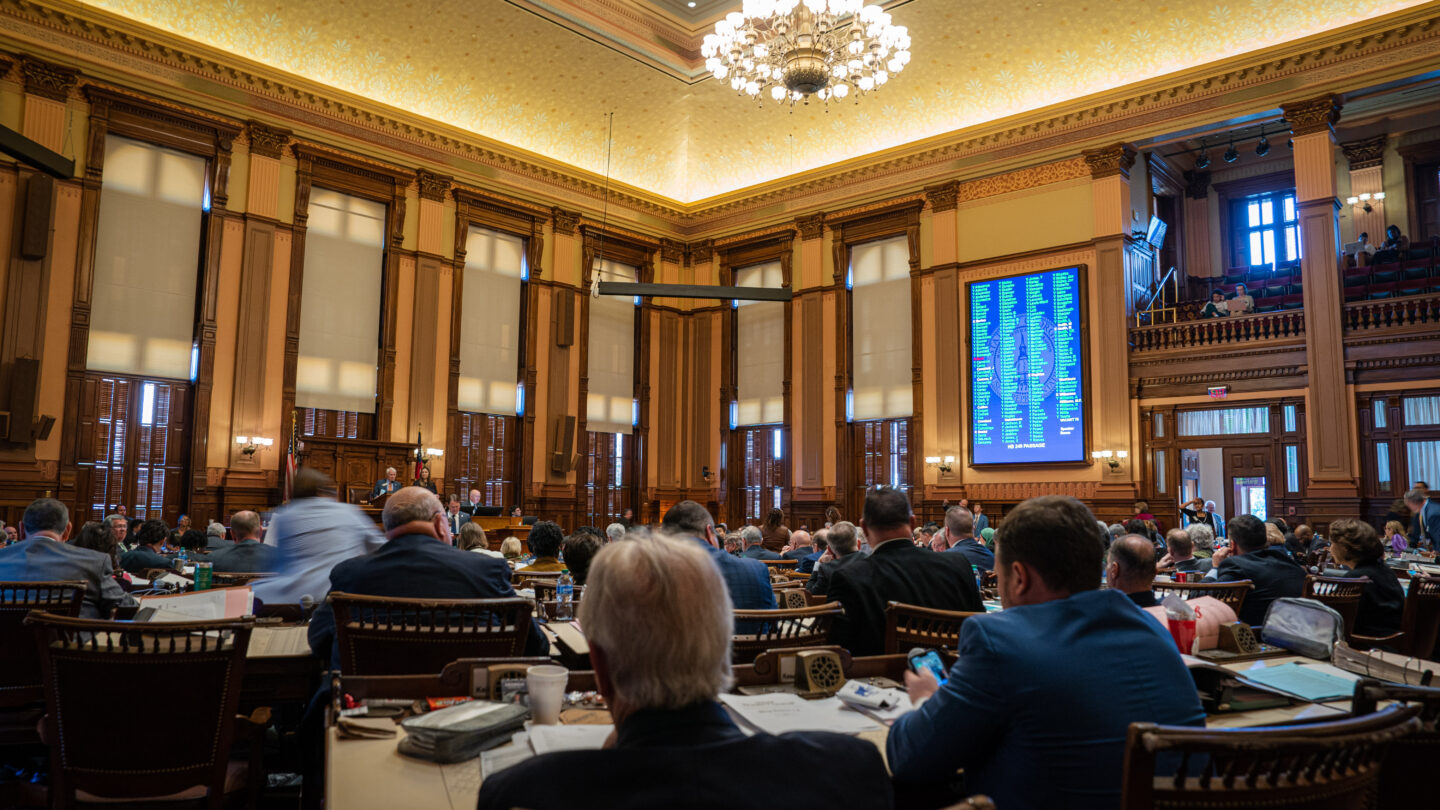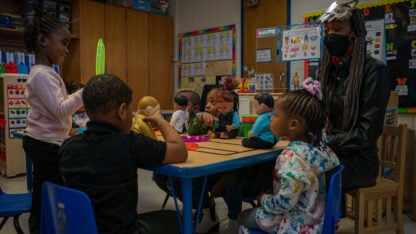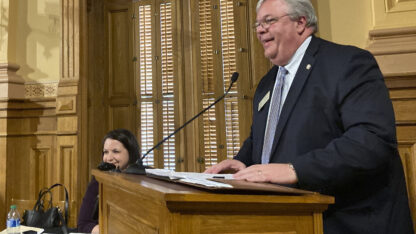A school voucher bill is one of many that survived Monday’s legislative deadline where pieces of legislation have to pass at least one chamber in order to stay alive for Georgia’ 2023 legislative session. After some intense debate on the Senate floor, Senate Bill 233 sailed through in a 33-23 vote.
The public vs. private debate
The bill would let parents use $6,000 of state money to create education savings accounts for their children. The money could be used for a range of things, including private school tuition, tutoring, or special services like speech pathology. Originally, the plan would have applied to any public school student in the state. The bill’s sponsors revised that due to opposition. Now, it applies to children who attend schools that rank in the lowest 25% of the state’s school rating system.
The measure sparked a tense debate between Republicans and Democrats on the Senate floor Monday. Money was a tension point.
Greg Dolezal, R-Cumming, is SB 233’s lead sponsor. He said $6,000 is slightly lower than what the state spends on average per student. That money would follow a child enrolled in public school to a private school, he said. But the money the local school district would spend on the child would stay with the district.
“The net result of that is that in every single school system in the state, the average amount of funding per capita increases because the local money stays there,” Dolezal said.
The program would also depend on whether the legislature fully funds K-12 schools through a formula called QBE. If not, the program won’t take effect, he said.
That explanation didn’t satisfy Democrats, who said state funds shouldn’t go toward private schools. Sen. Elena Parent, D-Atlanta, accused Republicans of ignoring issues like poverty and literacy rates over the years in favor of vouchers.
“You take out the millions [of dollars],” she said. “You don’t work on the issues that matter and then you use little trick bills like this to try to pull money out to say, ‘Well, the schools are so bad, that now we need to give everyone the money to go to private school.’”
The Professional Association of Georgia Educators (PAGE), which opposes the bill, estimated the program could cost the state up to $180 million over the next five years.
Pandemic-related momentum?
School closures during the pandemic added fuel to the school choice movement. In Georgia, enrollment in charter schools and homeschooling have grown since the Covid-19 pandemic. Georgia Center for Opportunity, a nonpartisan policy research organization, said SB 233 will expand school choice options.
“Parents across the country are demanding more educational options in the wake of the COVID-19 pandemic,” GCO’s vice president of public policy Buzz Brockway said in a news release. “Now is not the time for more lip-service or half-hearted efforts to help students reverse learning loss.”
On the Senate floor Monday, Sen. Jason Esteves, D-Atlanta, said the bill wouldn’t help low-income families.
“I’ve heard the argument about school choice, but in the neighborhoods that we’re talking about…the reality is there is no school choice,” he said. “You are choosing between failing schools. The private schools that would provide a quality education are not in the communities where these students live.”
Sen. Matt Brass, R-Newnan, said the program would help parents whose kids are struggling and can’t get the help they need in public school.
“I think what gets lost in all this debate is we focus on the school, we focus on a physical structure and we lose focus on what matters most in this debate and that is the child and…the parents that are working hard so that they can provide opportunity for their children,” Brass said.
What about rural students?
Some critics of the bill say there are fewer private school options for students in rural parts of Georgia.
“Are we going to help the children who are the most vulnerable and need the help or the opportunity?” said Derek Mallow, D-Savannah during the Senate debate. “We say we’re here for rural Georgia, colleagues, but this bill is not in favor of rural Georgia.”
Private schools can opt-in to the program but aren’t required to participate.
“It’s not that there aren’t private schools specifically in our physical area,” says Forsyth County high school student Abigail Harris. “It’s that regardless of whether or not we have a voucher, private schools are completely inaccessible.”
Harris is with the Georgia Youth Justice Coalition for Action. She says a $6,000 voucher wouldn’t cover full tuition, making private schools out of reach for some.
The right-leaning Georgia Public Policy Foundation disagrees, pointing out that 60% of scholarships issued through Georgia’s tax credit program this school year were awarded to students outside the state’s metro areas.
Although it made it through the Senate, SB 233 still needs to be approved by the House to have a chance of becoming law. Voucher bills have historically had a tougher time in the House, but the chamber did pass House Bill 101 Monday, which would raise the cap on Georgia’s tax credit scholarship program by $10 million.
Background
Georgia has a voucher program for students with special needs. The average amount of money a family gets is around $6,000. They can use that to pay for private school tuition. The state also supports a tax credit scholarship program. That plan lets taxpayers donate to Student Scholarship Organizations (SSOs) and they get dollar-for-dollar tax credits for those donations. The scholarship money doesn’t go into the state’s coffers, which is why supporters of the program don’t like the term “voucher” for that program.









